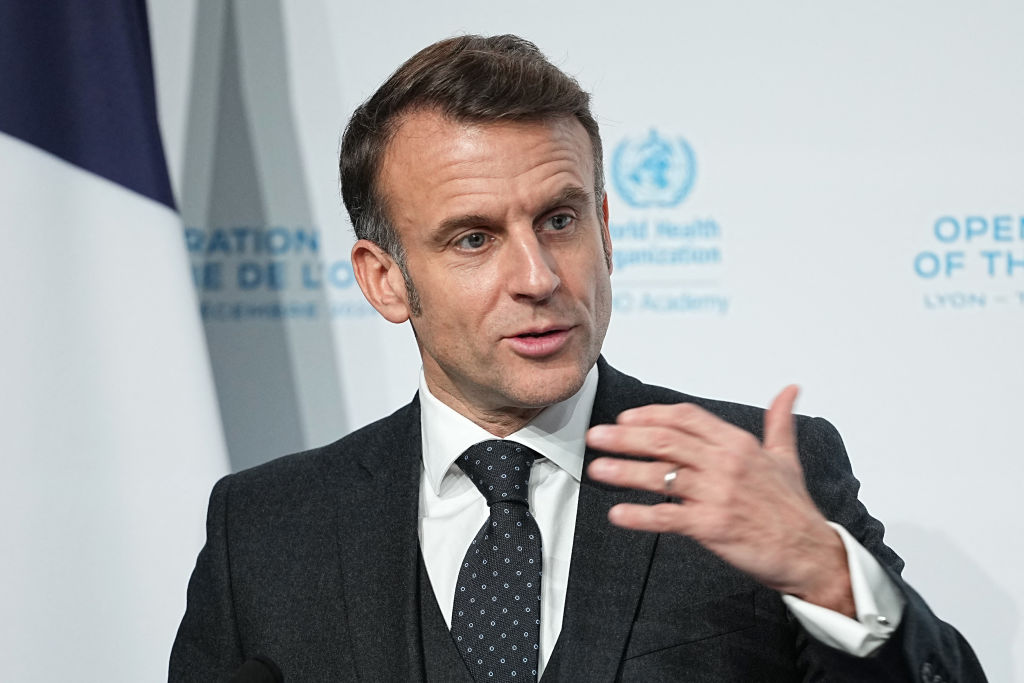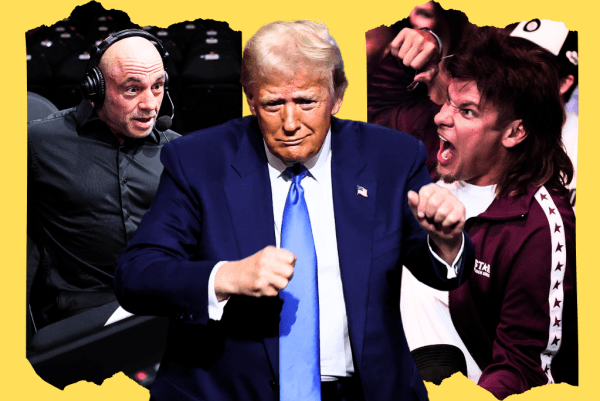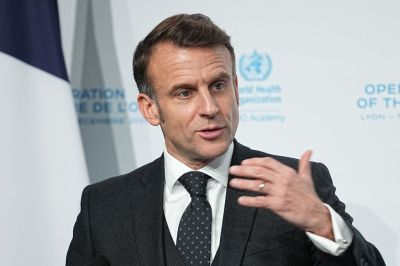A viral post on X claims that French President Emmanuel Macron is pushing the European Union to deploy military forces to Ukraine. “BREAKING: FRENCH PRESIDENT Macron to push for sending EU troops to Ukraine,” reads the post, which had more than 180,000 views as of December 17.
The claim is false. Macron and other European leaders are meeting this week to discuss peace talks between Ukraine and Russia, including the possible deployment of peacekeeping forces in the event of a ceasefire agreement. However, the EU is not considering deploying forces in a combat capacity.
Last week, Politico reported that EU and NATO leaders intended to meet December 18 to discuss possible peace talks between Ukraine and Russia and the subsequent deployment of peacekeeping forces to the country. The meeting will reportedly take place in Brussels and include Macron, Ukrainian President Volodymyr Zelensky, NATO Secretary-General Mark Rutte, Polish President Andrzej Duda, German Chancellor Olaf Scholz, and several other European officials.
The talks come on the heels of President-elect Donald Trump’s December 7 meeting with Zelensky and Macron, where Trump reportedly told the leaders that European troops should be sent to Ukraine to monitor a successful ceasefire agreement. Trump promised throughout his 2024 presidential campaign to end the war in Ukraine quickly, even saying he could do so by his inauguration on January 20, 2025. The Trump administration has yet to share its peace plan publicly.
While EU countries could contribute peacekeeping forces in the event of an eventual ceasefire, the deployment of troops in a combat capacity would be unlikely, if not impossible. “Absolutely not, people who believe that the European Union would do this have no idea how the EU works,” Luke Coffey, a national security and foreign policy expert at the Hudson Institute, told The Dispatch Fact Check when asked whether Macron or any other EU leaders would push the union to send combat forces to Ukraine.
Coffey said the EU would need both an authorizing resolution from the United Nations Security Council and unanimous support from each of the EU’s 27 member countries before it could deploy military forces. From both a practical and legal perspective, clearing these two hurdles would be nearly impossible. “You have three neutral countries inside the European Union—Ireland, Malta, and Austria—that would not go along with the EU sending a military force to Ukraine,” Coffey explained. “And then, most of all, you have Hungary and Slovakia, which both have leadership who are sympathetic to Moscow.”
In February, Macron drew criticism from some Western leaders when he suggested that no options should be ruled out in support of Ukraine, including the option to send military forces. The EU has provided substantial support to Ukraine since the onset of the Russian invasion in February 2022, including through arms and ammunition deals, personnel training, and non-lethal military equipment. No Western ally, however, has crossed the line into direct military involvement.
If you have a claim you would like to see us fact check, please send us an email at factcheck@thedispatch.com. If you would like to suggest a correction to this piece or any other Dispatch article, please email corrections@thedispatch.com.







Please note that we at The Dispatch hold ourselves, our work, and our commenters to a higher standard than other places on the internet. We welcome comments that foster genuine debate or discussion—including comments critical of us or our work—but responses that include ad hominem attacks on fellow Dispatch members or are intended to stoke fear and anger may be moderated.
With your membership, you only have the ability to comment on The Morning Dispatch articles. Consider upgrading to join the conversation everywhere.